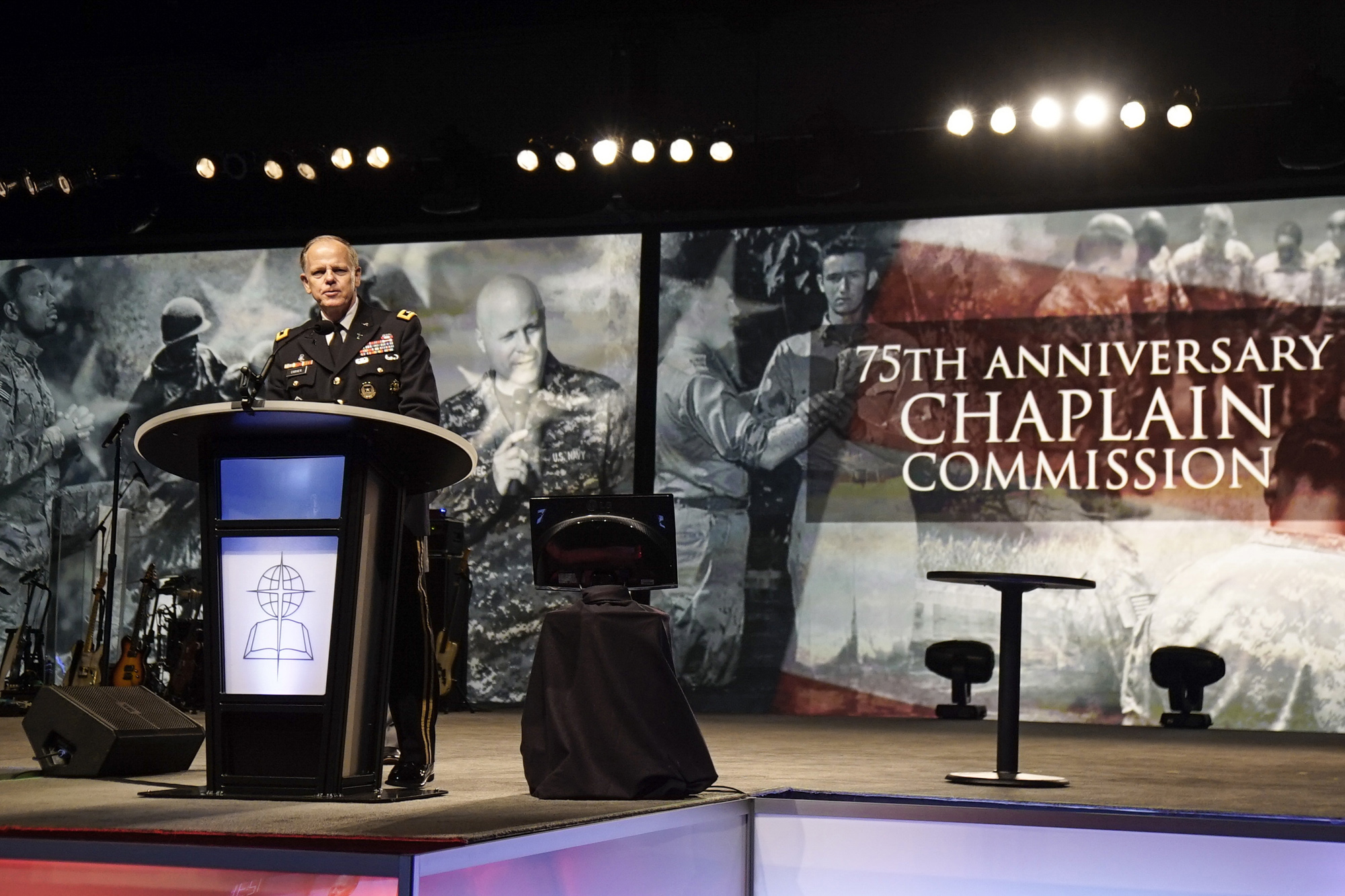
[SLIDESHOW=42924]ALPHARETTA, Ga. (BP) — In the months leading up to the United States’ involvement in World War II, the Home Mission Board established a chaplaincy committee to endorse the work of military chaplains and verify their efforts as sanctioned by the association where they served. That was 75 years ago July, 1941.
Doug Carver, the North American Mission Board’s (the entity now responsible for chaplaincy) executive director of chaplaincy, called military chaplaincy “a frontline ministry that is vital to the extension of the local church and the advancement of the Gospel.”
Carver stressed the importance of endorsed military chaplaincy, recounting that 75 years ago, when America was on the verge of war, messengers at the 1941 Southern Baptist Convention in Birmingham, Ala., “firmly agreed there was no greater soul-winning opportunity facing Southern Baptists than the thousands of young men pouring into the military training camps around the country.”
The messengers recognized the need for trained chaplains to aid the spiritual war within the physical one. This call to action — for Southern Baptist chaplains to officially be sanctioned within their association — was led by Alfred Carpenter, the first military chaplain commissioned by the Home Mission Board. Carpenter believed that “every chaplain was a missionary in uniform,” Carver said.
The initiative was successful, as ordained Southern Baptist chaplains recorded 299,342 professions of faith from 1941 to 1945. The positive effects from the endorsed chaplaincy movement also helped those called to this unique ministry to recognize its divine purpose.
“I haven’t had an assignment yet that I’ve asked for,” said Michael Coleman, former youth pastor at Ocean View Baptist Church, now an endorsed U.S. Army chaplain. “But every single assignment has been what God intended. My experience in Afghanistan was one of the most difficult times of my life, but the way God orchestrated it showed purpose. There was pain, but there was purpose. When I got home, I could see what He’d been doing all along through me.”
“Today, 75 years later, Southern Baptist chaplains continue carrying the Gospel into places where the church cannot go,” said Carver, listing armed forces, correctional facilities, health care settings, the public safety arena, disaster relief sites and corporate environments as examples of areas where more than 3,400 chaplains currently serve.
Immediate past SBC President Ronnie Floyd also recognized the 75th anniversary of the first military chaplains endorsed by NAMB and its predecessor, the Home Mission Board, at the SBC’s annual meeting, June 14-15, in St. Louis.
“The attack on Pearl Harbor 75 years ago is a constant reminder that our freedom, purchased by the blood of American patriots, should never be taken for granted,” Floyd said.
Floyd called it an “awesome privilege” to honor the veterans and those who served the veterans, while they fought for America’s freedom.
Endorsement affirms that the chaplain meets their denomination’s requirement to provide ministry in an institutional setting. The Chaplain Commission, composed of a small group of NAMB trustees, selects qualified people for endorsement as Southern Baptist chaplains.
This endorsement creates a formal covenant of mutual commitment, accountability and support between the chaplain, their local church and the SBC.
One such chaplain, Michael Langston, fulfills this role every day.
“I would go around and see a number of different chaplains,” said Langston, both a former Marine officer and Navy chaplain, now retired. “Chaplains deal with real life experiences of men and women in combat, as well as the aftermath and the issues experienced on the front lines. There are also run-of-the-mill daily issues of life about children, marital issues, purpose and questions about God in the midst of the carnage. I constantly see how we help others transition from that place of fear.”
Currently, NAMB has more than 1,500 endorsed chaplains in the armed forces. Learn more at www.namb.net/Chaplaincy.
















